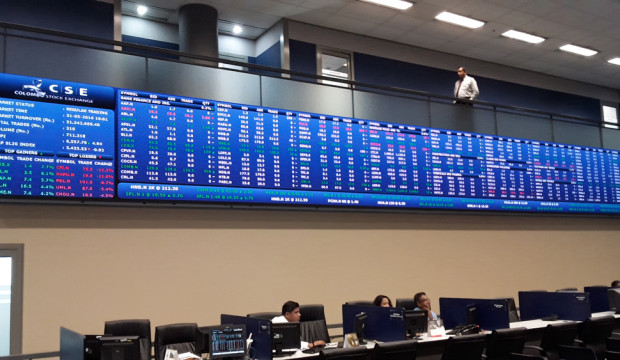November, 24, 2017

Reuters - Sri Lankan shares hit a one-week closing low on Thursday, as investors waited for clarity on new taxes in the national budget and on key legislations, although selling by foreign investors in Commercial Bank of Ceylon helped boost turnover.
The Colombo stock index ended 0.13 percent weaker at 6,456.11, its lowest close since Nov. 16.
Commercial Bank, which accounted for 82.3 percent of the day’s turnover, closed 0.5 percent firmer. The index was, however, dragged down by large caps, with Ceylon Tobacco Company falling 1 percent and Nestle Lanka Plc slipping 1.1 percent.
“Banks were actively traded and Commercial Bank foreign selling was the main contributor for the turnover. Other than that, the market was very dull,” said Atchuthan Srirangan, senior research analyst at First Capital Holdings PLC.
The day’s turnover stood at 1.49 billion rupees, more than this year’s average of around 954.9 million rupees.
Foreign investors net sold equities worth 1.23 billion rupees ($8 million) on Thursday, but they have bought a net 18.5 billion rupees worth stocks so far this year.
“It is a bit weak market. There is also some political uncertainty after a court decision related to local government election. But we expect foreign trading to continue,” Srirangan said.
A court on Wednesday issued a stay order on a legislation that cleared the island nation’s Election Commission to hold local government polls in which the coalition partners of the government have decided to contest separately.
Finance Minister Mangala Samaraweera imposed new taxes on motor vehicles, telecoms, banks and liquor in the 2018 budget presented earlier this month, with the final budget vote scheduled for Dec. 9.
Analysts said market participants have sought more clarity on these taxes and that there could be some amendments to these proposals before the final vote.
The government also released gazette notifications on the Inland Revenue Act and the Exchange Control Act, with investors waiting for clarification on the new legislations.
Video Story